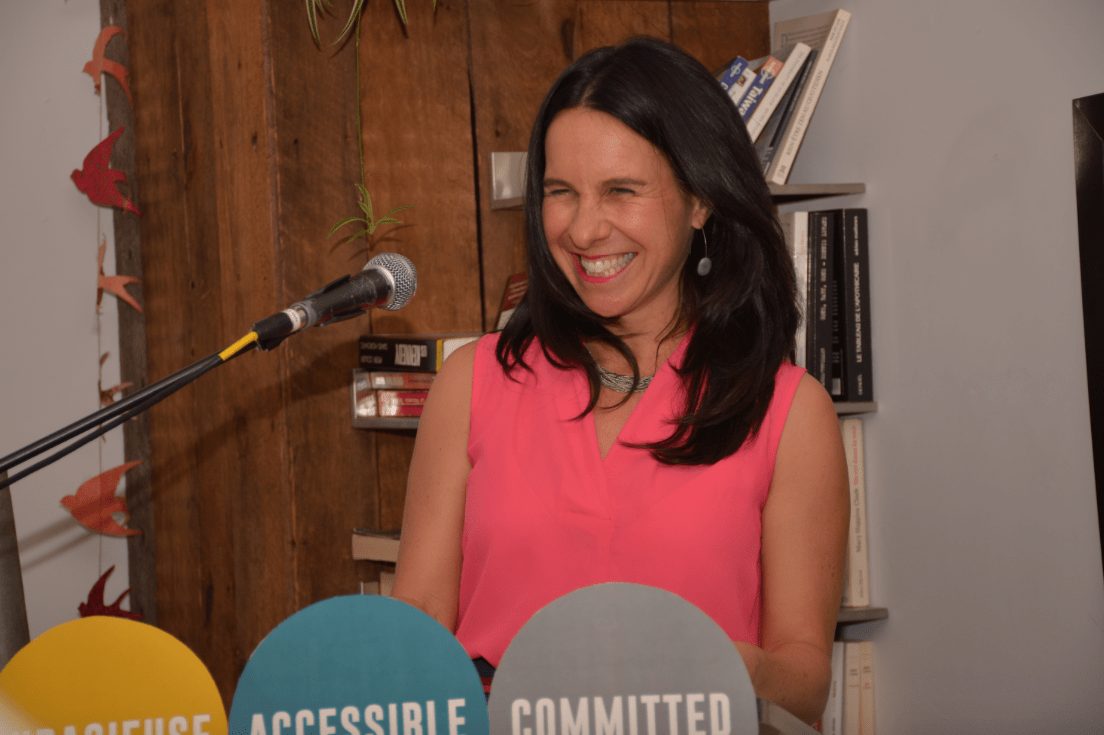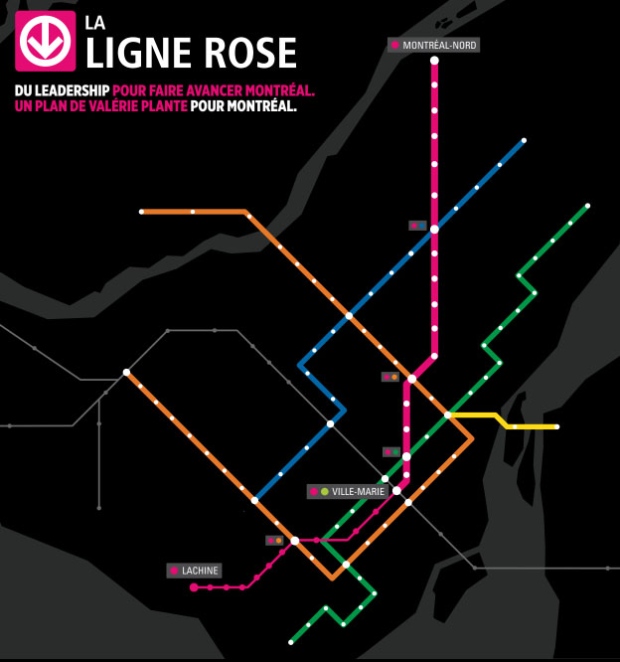Valérie Plante entered Sunday's mayoral election in Montreal as a huge underdog. Though she'd served on the City Council, she was considered an outsider in the city's political scene, known for its clubbiness and corruption.
But in a victory that dazzled the Canadian press, Plante beat long-time incumbent Denis Coderre to become the first woman ever elected mayor of Montreal.
Plante's electoral Cinderella story demonstrates not only her political gifts, but the broad appeal of her platform, which focused heavily on better transit and safer bicycling.
Immediately following the election, Plante announced her first priority is to improve the city's transit system, telling Radio-Canada she wants to be known as the "Mayor of Mobility."
Plante ran on a platform of adding 300 buses to the city's fleet, reducing fares 40 percent for low-income residents, free service for children and seniors, and universal accessibility at all metro stations by 2030 [PDF].
The boldest transit plank is her proposal for a new metro line -- Montreal hasn't built one in 30 years. The "Pink Line" would link some of the city's poorest neighborhoods to downtown, and is estimated to cost $6 billion to build (in Canadian dollars).
Now that she'll be in charge at City Hall, the question of how to pay for these transit improvements looms larger. During the campaign, Coderre criticized Plante for lacking a realistic funding plan for her transit platform. Plante says the national government's $35 billion program for "transformative infrastructure projects" will pay for the metro line, and that the provincial government can subsidize free and discount fares.
For bicycling, Plante's platform was also ambitious, but not so expensive. She wants to build out a 140-kilometer Réseau Express Vélo ("Bike Express Network") of two-way protected bike lanes, at a projected cost of $25 million annually for 10 years.
She also promised to improve safety at the 20 most-dangerous intersections in the city, extend sidewalks, and reduce wait times for pedestrians at signalized intersections. Advocates for active transportation were especially energized by her victory.
"I'm going to get Montrealers moving again," Plante said in her victory speech. "I'm going to build safer roads for pedestrians, seniors, and cyclists."







